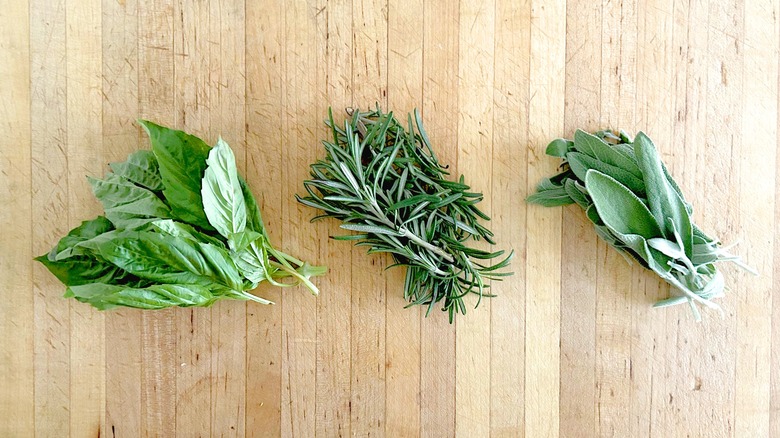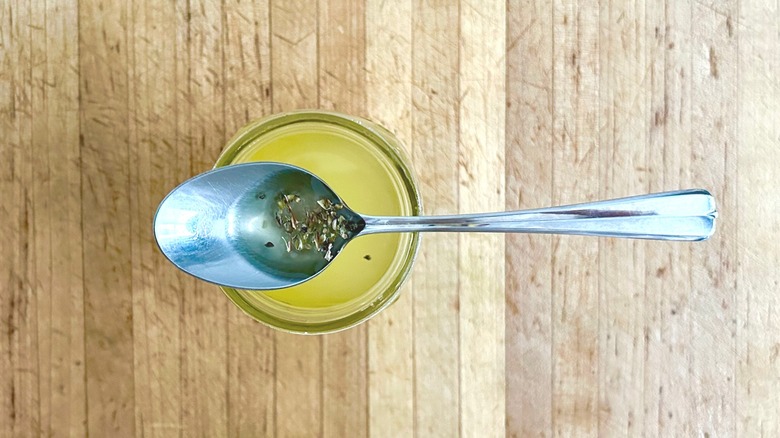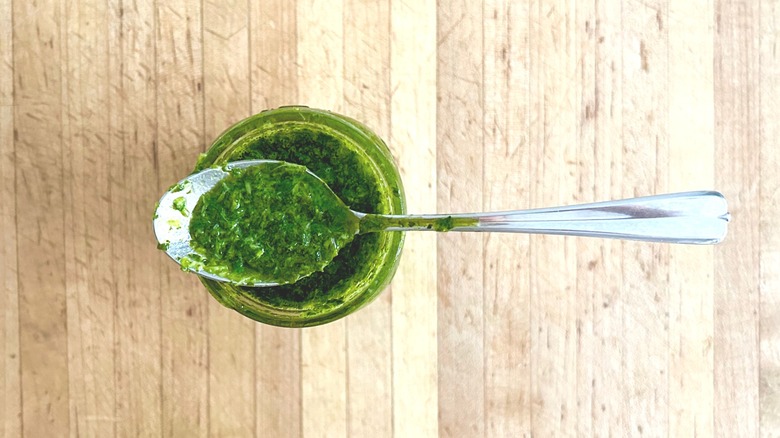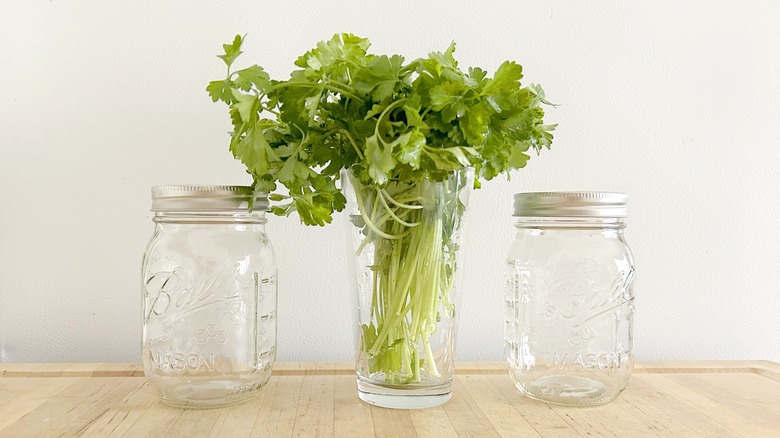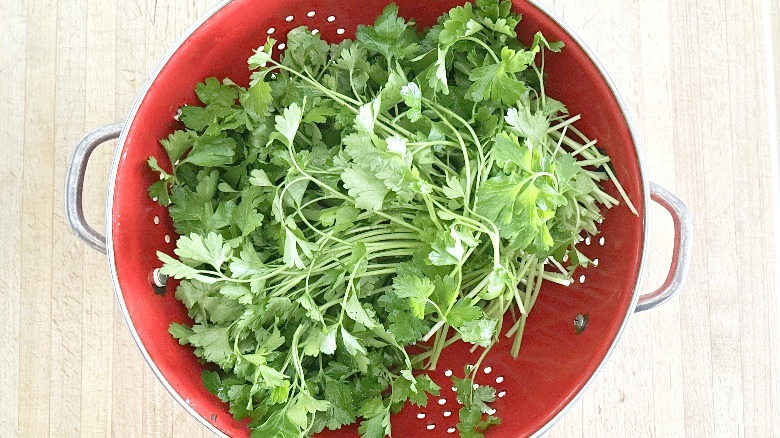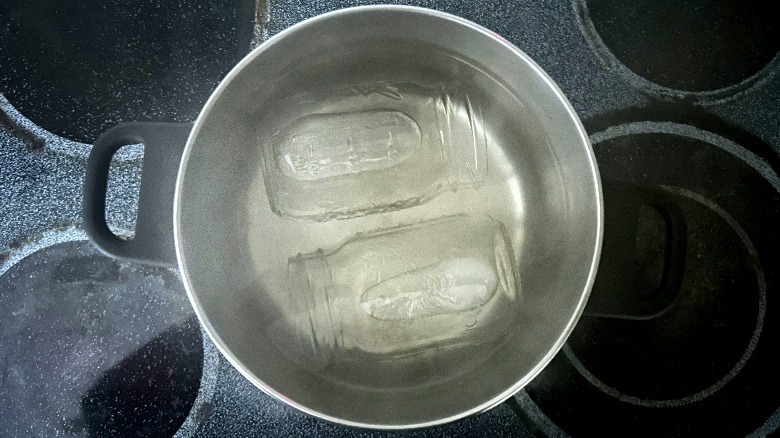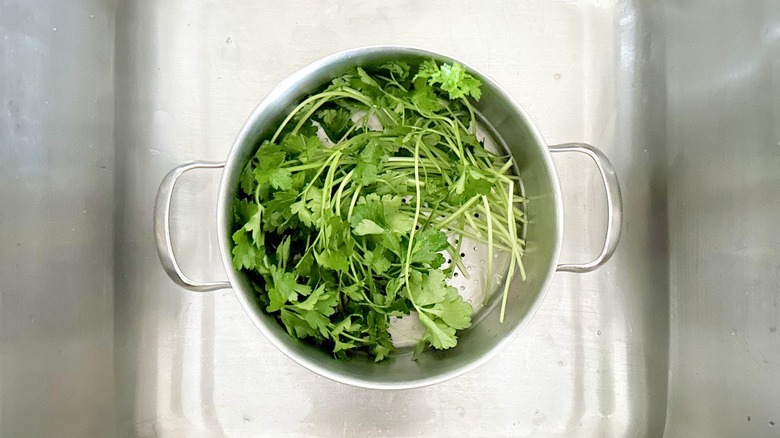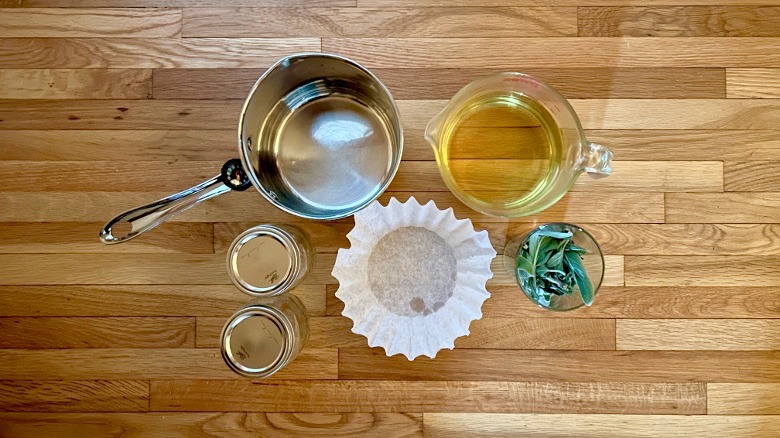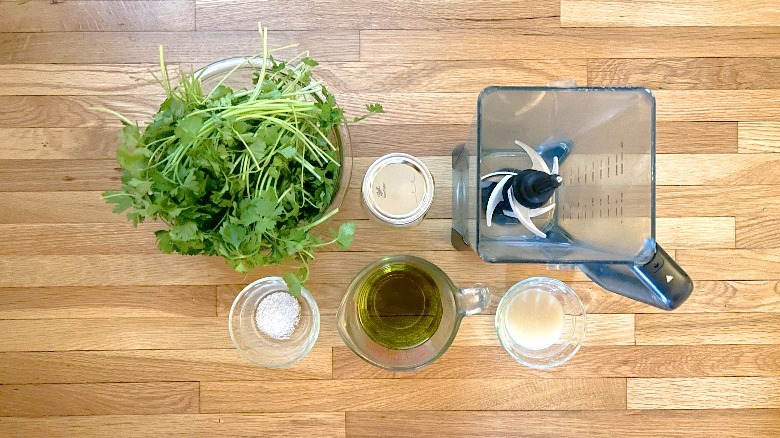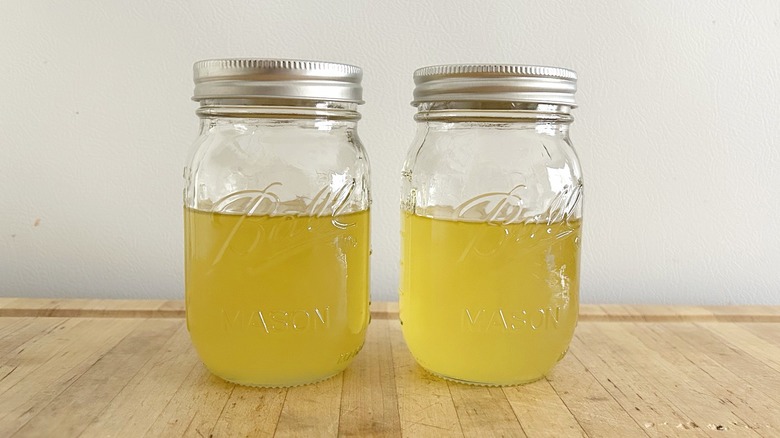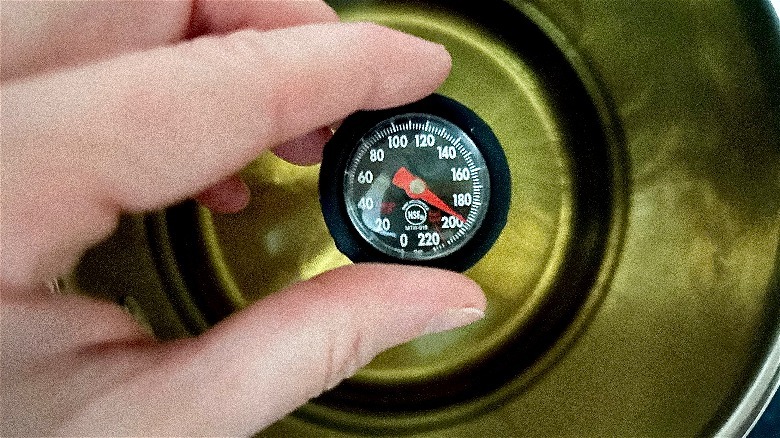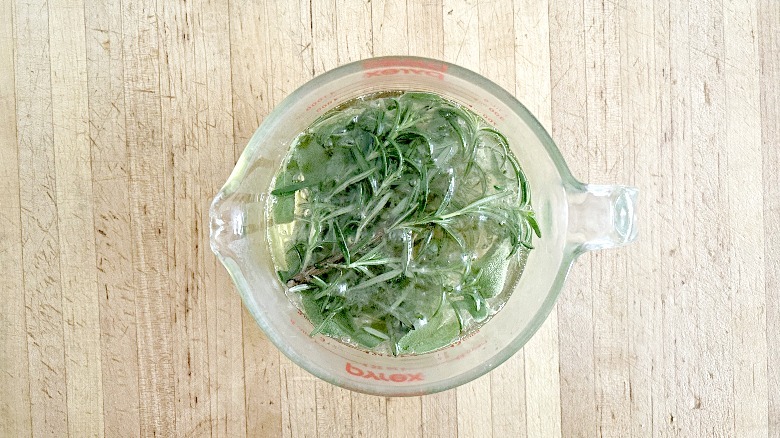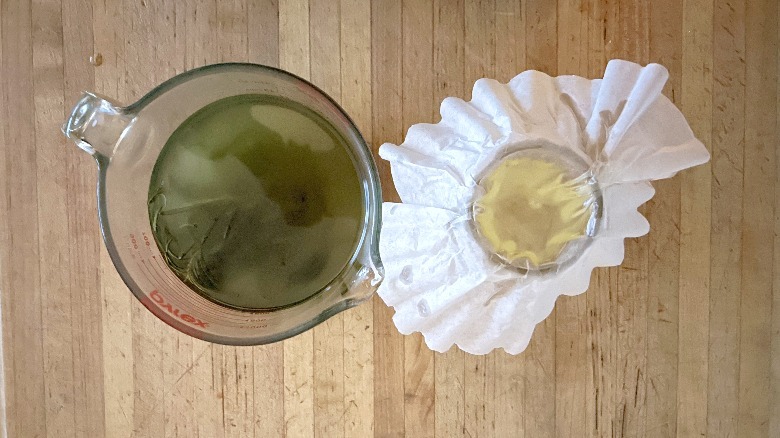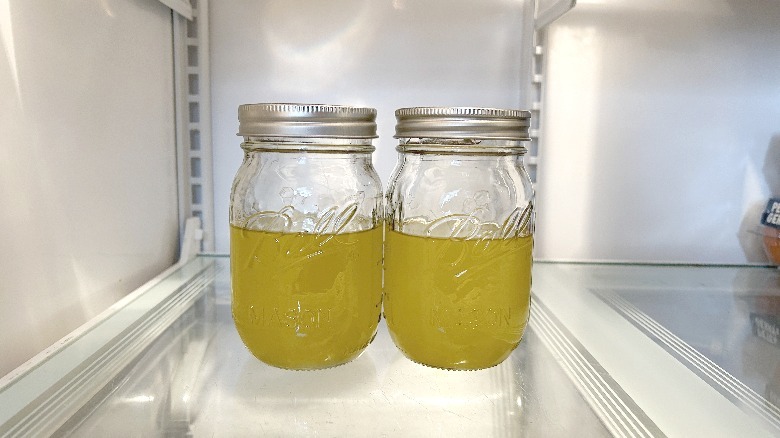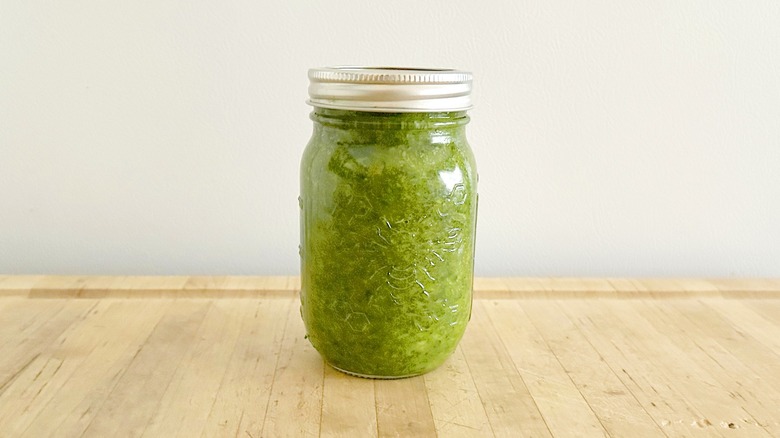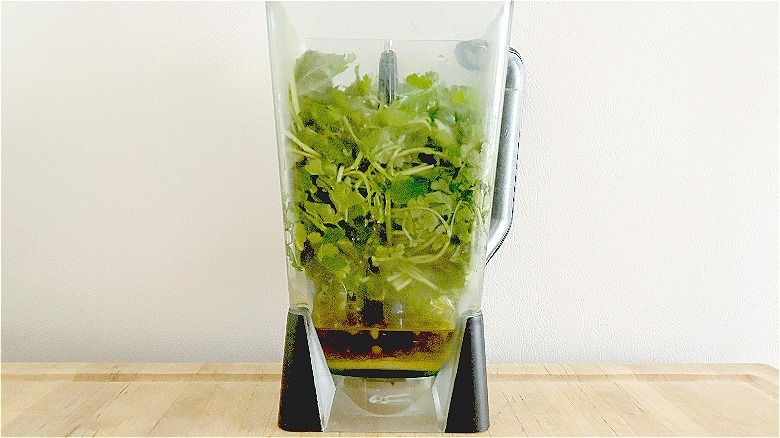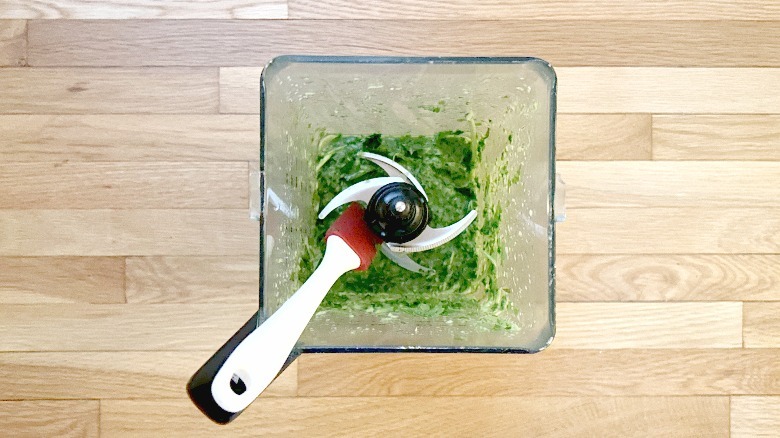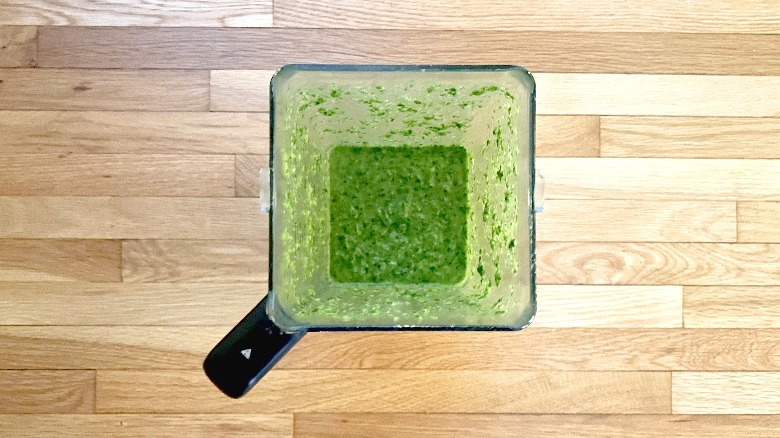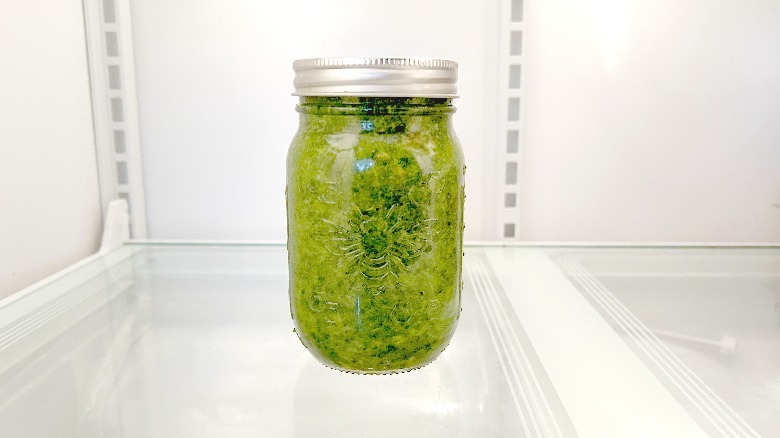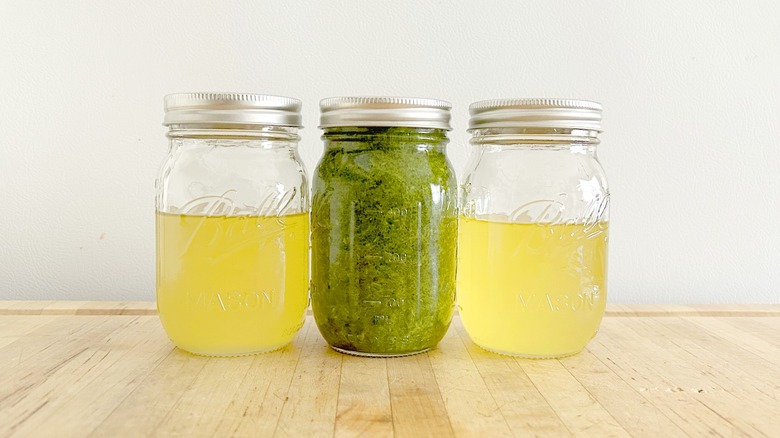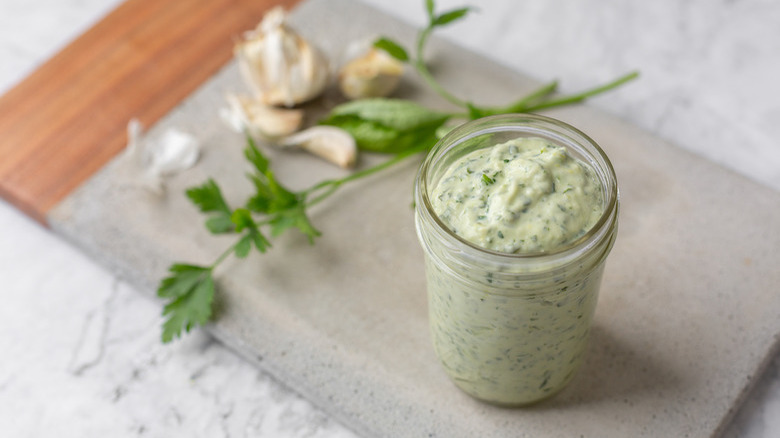Herb Vs Herb-Infused Oil: What's The Difference And How Do You Make Them?
If you grow herbs in a container or vegetable garden, you know there are times when you may end up with a bumper crop of an herb. Aside from using them in every meal at breakfast, lunch, and dinner for a week straight, there are only so many ways to preserve those beautiful fresh herbs. Sure, you can dehydrate or freeze herbs, but both these methods result in a loss of brightness in the color and flavor. A better way to preserve your herbs is to create an herb-infused or herb oil from them. Both of these retain the inherent flavor of the fresh herbs without exerting a lot of effort in the process. And they don't require a lot of unusual equipment.
Read on to discover the step-by-step instructions for extending the life expectancy of your fresh herbs by creating an herb-infused or herb oil. You will love having these on hand for all your recipes, and they make for a beautiful gift to share with your friends and family.
What is herb-infused oil?
Most grocery stores carry fancy-looking oil bottles with a pitiful-looking sprig of desiccated rosemary or thyme floating in them. These often lack any semblance of herb flavor and can sometimes smell and taste rancid when you open the bottle and cook with them. A better alternative to these often pricey herb-infused oils is to create your own.
The process is easier than it looks and enables you to use whatever combination of herbs you want. The key is to use fresh herbs, free of dirt or mold, which have not been damaged. Do note that the shelf life of these homemade herb-infused oils is not as long as you might expect or as those in the grocery store might lead you to believe.
Herb-infused oils are best used in salads, marinades, sautéed vegetables, or for dipping home-baked bread. They are not intended for high-heat cooking or use with other aggressively flavored ingredients where their flavor can get masked and muted.
What is herb oil?
If you have dined in a fancy restaurant, you may have noticed verdant herb oils garnishing your plate. These aromatic and attractive oils are a delightful way to pack flavor and color into myriad recipes, from marinades to salads to pasta dishes. They are also a fabulous way to use more delicate herbs that bruise easily, like basil.
The key to preparing a delicious herb oil is to use a combination of clean, fresh herbs and combine them with the acidity of lemon juice, which not only imparts a brightness of flavor but helps to maintain their lush hue. Whatever you do, avoid using herbs that are damaged or beginning to exhibit signs of mold or rot. This can contaminate the whole batch of herb oil and cause it to spoil.
Before you make herb-infused or herb oil
Herb-infused and herb oils rely on fresh, clean, dry herbs. The last part is crucial. Since water repels oil, you cannot get them to marry with it in either of these. The best way to clean herbs is by using a salad spinner. If you do not own one, rinse your herbs in cold water in a colander, shake off excess moisture, and pat them dry with paper towels.
You will also need to clean and sanitize mason jars for storing your freshly made herb-infused or herb oil. Start by washing the jars and lids in hot, soapy water before rinsing thoroughly. To sanitize the jars, place them in water and boil for at least 10 minutes. The jars can then be removed using clean tongs and set upside down to dry on a clean towel before use. Do not boil the lids. These should be allowed to simmer in water for 10 minutes before allowing them to air dry on a clean towel.
What tools/ingredients you'll need for making herb-infused or herb oil
Tools/ingredients for herb-infused oil:
-
2 cups fresh herbs, cleaned and dried
-
3 cups light olive oil
-
2 1-quart mason jars, sterilized and air-dried
-
Small saucepan
-
Thermometer
-
Large measuring cup or bowl
-
Clean kitchen towel
Advertisement -
2 coffee filters or cheesecloth
Tools/ingredients for herb oil:
-
Blender or food processor
-
5 cups fresh herbs, cleaned and dried
-
3 tablespoons lemon juice
-
1 ¼ cup extra virgin olive oil
-
½ teaspoon kosher salt
-
Spatula
-
1-quart mason jar, sterilized and air-dried
How to make herb-infused oil
Start by heating light olive oil over medium heat until a thermometer registers 200 degrees F. Use light olive oil instead of extra virgin. Extra virgin has a more potent flavor and aroma, which will mask those of the fresh herbs.
Place the herbs in a large measuring cup or bowl and pour the heated oil over the fresh herbs. Cover the measuring cup with a clean kitchen towel and allow the herbs to steep in the oil for 8 to 12 hours.
Tuck the coffee filters into the tops of the sterilized mason jars or top the jars with cheesecloth. Strain the herb-infused oil through the coffee filters or cheesecloth into the mason jars a little at a time until all of the oil has been filtered.
Seal the jars with their lids and place them in the refrigerator. Note: If you want to, reserve some of the cleaned herbs you are using and place them in the mason jar before sealing for aesthetic appeal, particularly if you plan to give these as a gift.
How to make herb oil
Place the cleaned herbs, lemon juice, oil, and salt in a blender or food processor. Purée the ingredients.
Remove the lid of the blender or food processor and scrape down the edges using a spatula.
Blend again until the herbs are mostly pulverized and fully incorporated into the oil.
Transfer the herb oil to a cleaned and sanitized mason jar and seal. Store the finished herb oil in the refrigerator. Note: If you prefer smooth herb oil, strain it through a coffee filter or cheesecloth before sealing it in the mason jar, but this is unnecessary.
How long does herb-infused and herb oil last?
One of the reasons purchasing store-bought herb-infused oils is not recommended is that they are notoriously perishable. The same holds for homemade herb-infused and herb oils. This is particularly applicable when using fresh herbs, which are highly susceptible to harboring Clostridium botulinum spores, causing botulism if not safely handled.
Always store herb-infused and herb oils made from fresh herbs in the refrigerator. Though they may solidify a bit, they can quickly be liquefied at room temperature. When properly stored, they will last for about a week. Keep an eye out for cloudiness, odors, and any mold that may form around the edges of the jar.
To extend the shelf-life of your herb-infused oils, transfer them to ice cube trays and freeze them. These can be stored for up to six months in the freezer. You can easily pop a cube or two out as needed for recipes.
Recipes using herb-infused or herb oil
Herb-infused and herb oils are best when used as-is or lightly heated. One place they shine is as a garnish. They can add aroma, flavor, and texture to soups, eggs, or atop a grilled piece of meat or fish. You can also use them as the base for a salad dressing, whether a basic vinaigrette or a creamy green goddess dressing. They are epic when incorporated into marinades, where they not only confer complex flavor but can help tenderize tough cuts of meat with some assistance from acidic ingredients.
Whatever you decide to use your herb-infused or herb oils for, don't be shy to showcase your creativity. You are only limited by your imagination and the productivity of your garden.
